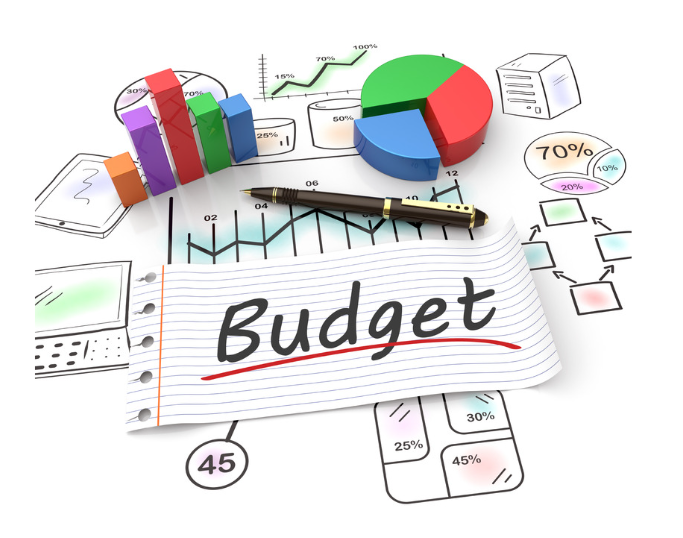Budgeting essentials
Budgeting is one of those things that many of us want to do, but rarely find the time to sit down and do

What is budgeting anyway?
A budget is a spending plan! Yes, a spending plan I used to think it was all about what I wasn’t allowed to spend, and I winged it week to week for far too many years! That is until Dave showed me this system, when I saw it first, I was like NO! Nope, I am not looking at a spreadsheet but he talked me around and it has changed my life!
This Personal Budget Planner will help you understand what you are spending your money on and compare this with your income.
A budget done correctly is a very precise tool for analyzing your finances. It answers a few questions.
1. Do I spend more than I earn?
An instinctive assessment is easy – if you’re eating up your savings or building up debts, you’re likely to be overspending. Yet before you can address this, it’s important to get an accurate idea of the size and scale of the problem.
Spending more than you earn is nothing new – in the 19th century Dickens’ Mr Micawber spelt out the problem
“Annual income twenty pounds, annual expenditure nineteen six, result – happiness. Annual income twenty pounds, annual expenditure twenty pounds six, result – misery.”
Major overspending can lead to a debt spiral and severe problems, that’s why the Budget Planner is designed to give you a definitive assessment of your finances.
2. What can I afford to spend?
Once you know where you’re spending, you can start to alter and prioritize what you do with your money to enable you to stick within your means.
But while the budget planner includes ways to enable you to work out how to prioritize within your means, the real difficulty is sticking to it. So, let’s start strong and you will have a better chance of sticking to it
Before you start, read the following six tips to help you fill in the free budget planner spreadsheet below.
Gather all statements and receipts
Don’t be tempted to guess or estimate. The success of a budget relies on accurate incomings and outgoing and the only way you can be 100% sure is by getting all your statements and bills in front of you in black and white. Also, while getting an idea of monthly spending is great, I recommend at least three months’ worth of bills and receipts so you can keep track of all your quarterly expenses, such as your car tax, ins etc.
Decide who your budget is for
It’s important to be consistent when budgeting. First decide who you’re filling it out for – is it just for you, or is it for your partner/family too? Finances often can’t be separated; in which case you should sit down and do it together.
Be as accurate as possible with your figures
It’s tempting to try to fool yourself by underestimating your expenditure. This is a budgeting sin… and you will be punished. Try to be accurate, and, if you’re not sure, guess larger not smaller – that way you’ll have cash left over and not be short.
Some types of spending overlap into separate groups, so be careful not to count expenditure twice. For example, if you’ve included your car insurance in the motoring section, don’t include it again under insurance.
Distinguish between credit card ‘debt’ and ‘spending’
The credit card section is designed for you to enter the cost of repaying your existing credit card debts. Don’t confuse this with spending, where you simply use your credit card and pay it off IN FULL.
CREDIT CARD MONEY IS NOT REAL MONEY YOU DO NOT HAVE IT TO SPEND!!!
The best way to explain this is with an example. Say you spend £500 each month on food shopping using your credit card, but then pay off your bill in full. This spending belongs in the food shopping column and not in the credit card column as, otherwise, you’ll be counting it twice. Only log it once for accurate picture better still stop using credit card for food shopping etc.
Check your pension details
If you contribute to pensions by direct debit or have a payment from your bank account each month, it should come under the expenditure section.
However, if your pension comes straight out of your salary as a payroll payment, don’t include it as when you fill in the income section, you should just fill in the net amount of pay you receive after all deductions.
Don’t forget to include ‘one-off’ spends
Whether it’s a holiday, car or special birthday treat, we all have one-off spends that can affect our budget planning. The best way of accounting for this is to apportion the annual cost of these into monthly amounts. So, let’s say your new car costs €2,000 – over a year, that’s €166.66 per month. So, you’d put €167 under “new car” each month.
Another top tip is to remember that when you do include one-offs, such as holidays, don’t forget to subtract any regular spending. For example, say you normally spend €100 per week on food shopping and €30 on petrol, if you’re abroad for the week, you won’t spend this, so make sure your budget reflects this.
My estimate is it’ll take a full day’s work… but look at the return. It’ll be the best paid work you’ve ever done
Check out our other free downloads https://davidkelleher.ie/2021/09/02/downloads/
If you are in difficulty and need further help on managing debt, please contact https://mabs.ie/#
